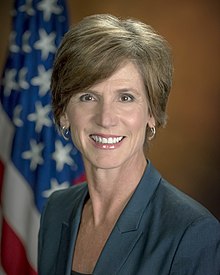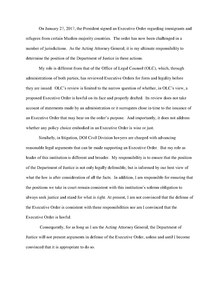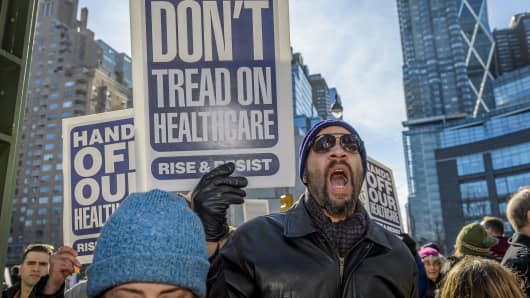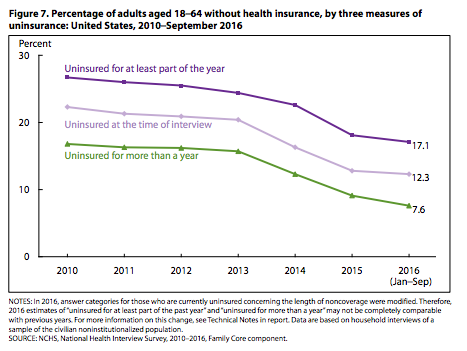1 / 15


Associated Press
JULIE PACE, ERIC TUCKER and JILL COLVIN, Associated Press1 hr ago

WASHINGTON (AP) — President Donald Trump's embattled national security adviser Michael Flynn resigned following reports he misled Vice President Mike Pence and other officials about his contacts with Russia. His departure upends Trump's senior team after less than a month in office.
In a resignation letter, Flynn said he gave Vice President Mike Pence and others "incomplete information" about his calls with Russia's ambassador to the U.S. The vice president, apparently relying on information from Flynn, initially said the national security adviser had not discussed sanctions with the Russian envoy, though Flynn later conceded the issue may have come up.
Trump named retired Lt. Gen. Keith Kellogg as the acting national security adviser. Kellogg had previously been appointed the National Security Council chief of staff and advised Trump during the campaign. Trump is also considering former CIA Director David Petraeus and Vice Admiral Robert Harward, a U.S. Navy SEAL, for the post, according to a senior administration official.  © The Associated Press FILE- In this Monday, Feb. 6, 2017, file photo, President Donald Trump passes Joint Chiefs Chairman Gen. Joseph Dunford, left, and National Security Adviser Michael Flynn as he arrives via Air Force One at Ma…
© The Associated Press FILE- In this Monday, Feb. 6, 2017, file photo, President Donald Trump passes Joint Chiefs Chairman Gen. Joseph Dunford, left, and National Security Adviser Michael Flynn as he arrives via Air Force One at Ma…
The Trump team's account of Flynn's discussions with the Russian envoy changed repeatedly over several weeks, including the number of contacts, the dates of those contacts and ultimately, the content of the conversations.
Late last month, the Justice Department warned the White House that Flynn could be in a compromised position as a result of the contradictions between the public depictions of the calls and what intelligence officials knew to be true based on recordings of the conversations, which were picked up as part of routine monitoring of foreign officials' communications in the U.S.
A U.S. official told The Associated Press that Flynn was in frequent contact with Ambassador Sergey Kislyak on the day the Obama administration slapped sanctions on Russia for election-related hacking, as well as at other times during the transition.
An administration official and two people with knowledge of the situation confirmed the Justice Department warnings on condition of anonymity because they were not authorized to discuss the matter publicly. It was unclear when Trump and Pence learned about the Justice Department outreach.
The Washington Post was the first to report the communication between former acting attorney general Sally Yates, a holdover from the Obama administration, and the Trump White House. The Post also first reported last week that Flynn had indeed spoken about sanctions with the Russian ambassador.
Trump never voiced public support for Flynn after that initial report and continued to keep his national security adviser close.
But White House officials sent contradictory messages about Flynn's status. Counselor Kellyanne Conway said Trump had "full confidence" in Flynn, while press secretary Sean Spicer said the president was "evaluating the situation" and consulting with Pence about his conversations with the national security adviser.
Asked whether the president had been aware that Flynn might have planned to discuss sanctions with the Russian envoy, Spicer said, "No, absolutely not."
The Kremlin had confirmed that Flynn was in contact with Kislyak but denied that they talked about lifting sanctions. On Tuesday, Russian lawmakers mounted a fierce defense of Flynn.
Konstantin Kosachev, chairman of the foreign affairs committee at the upper chamber of the Russian parliament, said in a post on Facebook that firing a national security adviser for his contacts with Russia is "not just paranoia but something even worse." Kosachev also expressed frustration at the Trump administration:
"Either Trump hasn't found the necessary independence and he's been driven into a corner... or russophobia has permeated the new administration from top to bottom," he said.
Kosachev's counterpart at the lower chamber of the Russian parliament, Alexei P ushkov, tweeted shortly after the announcement that "it was not Flynn who was targeted but relations with Russia."
Flynn's discussions with the Russian raised questions about whether he offered assurances about the incoming administration's new approach. Such conversations would breach diplomatic protocol and possibly violate the Logan Act, a law aimed at keeping citizens from conducting diplomacy.
Administration officials said that misleading Pence was ultimately Flynn's downfall, though they insisted he resigned and was not fired by Trump.
California Rep. Adam Schiff, the top Democrat on the House Intelligence Committee, said Flynn's resignation "does not end questions over his contacts with the Russians." He said the White House has yet to be forthcoming about whether Flynn was acting at the behest of the president or others.
Flynn's resignation comes as Trump and his top advisers seek to steady the White House after a rocky start. The president, who seeks input from a wide range of business associates, friends and colleagues, has been asking people their opinions on his senior team, including Spicer and chief of staff Reince Priebus.
Flynn was a loyal Trump supporter during the campaign, but he was viewed skeptically by some in the administration's national security circles, in part because of his ties to Russia. In 2015, he was paid to attend a gala dinner for Russia Today, a Kremlin-backed television station, and sat next to Russian President Vladimir Putin during the event.
Flynn apologized to Pence about the matter on Friday, according to an administration official. The official said Pence was relying on information from Flynn when he went on television and denied that sanctions were discussed with Kislyak.
Above is from: http://www.msn.com/en-us/news/politics/trump-national-security-adviser-michael-flynn-resigns/ar-AAmS0ZI?li=BBmkt5R&ocid=spartandhp
Sally Yates
From Wikipedia, the free encyclopedia https://en.wikipedia.org/wiki/Sally_Yates
Sally Yates

United States Attorney General
Acting
In office
January 20, 2017 – January 30, 2017
President
Donald Trump
Preceded by
Loretta Lynch
Succeeded by
Dana Boente (acting)
United States Deputy Attorney General
In office
January 10, 2015 – January 30, 2017
Succeeded by
John Horn
Personal details
Born
Sally Caroline Quillian
August 20, 1960 (age 56)
Atlanta, Georgia, U.S.
Education
University of Georgia (BA, JD)
Sally Caroline Yates (née Quillian; born August 20, 1960) is an American lawyer. She served as a United States Attorney and later United States Deputy Attorney General, having been appointed to both positions by President Barack Obama.
Following the inauguration of Donald Trump and the departure of Attorney General Loretta Lynch, Yates served as Acting Attorney General from January 20, 2017, until being dismissed by President Trump on January 30, following her instruction to the Justice Department not to defend Trump's immigration-related executive order in court.[1][2]
Early life and education
Yates was born in Atlanta to J. Kelley Quillian, an attorney and judge who served as a judge on Georgia Court of Appeals between 1966-84, and Xara Terrell Quillian.[3] Her grandmother had been one of the first women admitted to the Georgia Bar, however, she was not hired as an attorney, instead working as a legal secretary for Yates' grandfather.[4]
She attended the University of Georgia, receiving her Bachelor of Arts degree in journalism in 1982. In 1986, she earned a law degree from the University of Georgia School of Law, graduating magna cum laude. While in law school, Yates served as the executive editor of the Georgia Law Review.[5][6]
Career
From 1985-89, Yates practiced with the law firm King & Spalding in Atlanta. In 1989, she was hired as Assistant U.S. Attorney by Bob Barr for the U.S. Attorney's Office for the Northern District of Georgia.[7] Early in her career at the Department of Justice, Yates prosecuted a variety of types of cases including white-collar fraud and political corruption.[6] In 1994, she became Chief of the Fraud and Public Corruption Section. She was the lead prosecutor in the case of Eric Rudolph, who committed the Centennial Olympic Park bombing,[8] a terrorist convicted for a series of anti-abortion and anti-gay bombings across the southern United States between 1996 and 1998, which killed two people and injured over 120 others.[9] She rose to First Assistant U.S. Attorney in 2002 and to Acting U.S. Attorney in 2004. In the U.S. Attorney's office she held leadership positions under both Republican and Democratic administrations.[10]
President Barack Obama nominated Yates to be U.S. Attorney in the Northern District of Georgia. She was confirmed by the Senate on March 10, 2010.[7] Yates was the first woman to hold that position in the Northern District of Georgia.[6] During her time as a U.S. Attorney, Yates was appointed by Attorney General Eric Holder to serve as Vice Chair of the Attorney General's Advisory Committee.[7]
Deputy Attorney General
On May 13, 2015, the United States Senate voted 84–12 to confirm Yates as Deputy Attorney General of the United States, the second-highest-ranking position in the Justice Department;[11][12] during her confirmation hearing, when questioned by Senator Jeff Sessions if she would disobey a president's unlawful orders, she responded that she would have an obligation to follow the law and the Constitution, and to give an independent legal advice to the president.[13] She served under Attorney General Loretta Lynch, who took office shortly before Yates's confirmation.[6][14]
Yates, in her confirmation hearing, when questioned by Senator Sessions on disobeying lawful orders by the president, responded that she will have an obligation to follow the law and the Constitution, and to give and independent legal advice to the president.[15]
As Deputy Attorney General, Yates was responsible for the day-to-day operations of the Justice Department, which included approximately 113,000 employees. In 2015, she authored the policy, known as the "Yates memo", prioritizing the prosecution of executives for corporate crimes.[16][17] During the final days of the Obama administration, she oversaw the review of 16,000 petitions for executive clemency, making recommendations to the President.[18]
Acting United States Attorney General
In January 2017, according to a Justice Department spokesman, Yates accepted a request from the incoming Trump Administration to serve as Acting Attorney General, beginning on January 20, 2017, and until the successor for Attorney General Lynch would be confirmed by the United States Senate.[19]
In late January, Yates warned the Trump Administration that National Security Advisor Michael T. Flynn had not been truthful about his contacts with Russia related to sanctions and that he was vulnerable to blackmail by Russian intelligence. This led to Flynn's resignation on February 13, 2017.[20][21]
On January 30, 2017, Yates ordered the Justice Department not to defend Trump's executive order on travel and immigration, writing in a letter to DOJ staff:
At present, I am not convinced that the defense of the executive order is consistent with these responsibilities of the Department of Justice, nor am I convinced that the executive order is lawful...I am responsible for ensuring that the positions we take in court remain consistent with this institution’s solemn obligation to always seek justice and stand for what is right. For as long as I am the acting Attorney General, the Department of Justice will not present arguments in defense of th[is] executive order, unless and until I become convinced that it is appropriate to do so.[22][23][24]
In response to her decision not to defend the order, former Attorney General Eric Holder tweeted that he trusted her judgment.[25]

Letter from Sally Yates explaining her view of Executive Order 13769
Later that day, via hand-delivered letter, she was dismissed by the Trump administration and replaced with Dana Boente, the United States Attorney for the Eastern District of Virginia.[26][16] In a White House statement, Yates was said to have "betrayed the Department of Justice by refusing to enforce a legal order designed to protect the citizens of the United States".[27]
Reactions to dismissal
Main article: Monday Night Massacre

White House Press Release about dismissal
Senate Minority Leader Chuck Schumer called Yates's actions "a profile in courage. It was a brave act and a right act", while Rep. John Conyers criticized the decision to fire her: "If dedicated government officials deem [Trump's] directives to be unlawful and unconstitutional, he will simply fire them as if government is a reality show."[28]
Law professor Jonathan Adler said, however, that "Yates did not claim she was convinced the order was unlawful, but only that it was not 'wise or just'" and that he was "not aware of any instance in which the Justice Department has refused to defend a presumptively lawful executive action on this basis". Adler argued that she should have resigned.[29] (Yates is reported to have considered resigning, but said she did not want to leave her successor facing the same question.)[30][31]
The editors of National Review said her defiance of the executive order was "inappropriate", since Yates was unelected and "every official in the Justice Department knows, if one disagrees with the law one is called upon to apply, or the policy one is bound to enforce, one is free to resign".[32]
The New York Times and others drew comparisons to U.S. President Richard Nixon's dismissal of special prosecutor Archibald Cox in the Saturday Night Massacre and "some cable networks"[33] began calling Yates's dismissal the "Monday Night Massacre".[34][33][35] Watergate investigative journalist Carl Bernstein, however, speaking on CNN, rejected the comparison. "There’s a big difference, because the Saturday Night Massacre was really about firing the attorney general when Nixon was the target of an investigation and was actively obstructing justice", he said. "I think the president is within his rights here to fire the attorney general, that he has that ability."[36]
Following Yates' dismissal, Representative Jackie Speier nominated her for the John F. Kennedy Profile in Courage Award.[37]
Personal life
Yates's husband, Comer Yates, is a school administrator who unsuccessfully ran for Congress in 1996.
[38][39] The couple have two children.






















 © The Associated Press FILE- In this Monday, Feb. 6, 2017, file photo, President Donald Trump passes Joint Chiefs Chairman Gen. Joseph Dunford, left, and National Security Adviser Michael Flynn as he arrives via Air Force One at Ma…
© The Associated Press FILE- In this Monday, Feb. 6, 2017, file photo, President Donald Trump passes Joint Chiefs Chairman Gen. Joseph Dunford, left, and National Security Adviser Michael Flynn as he arrives via Air Force One at Ma… 

